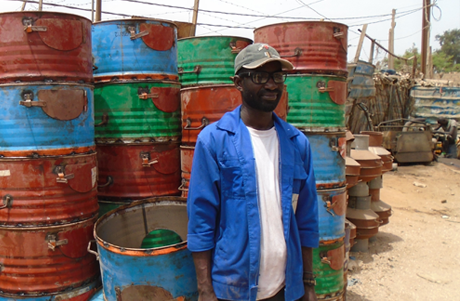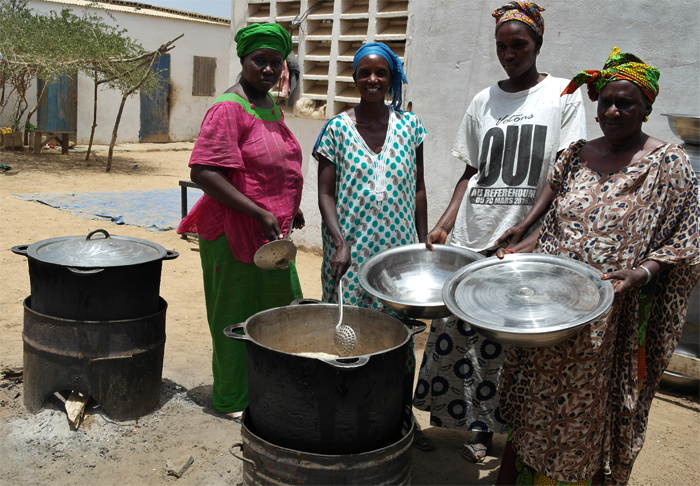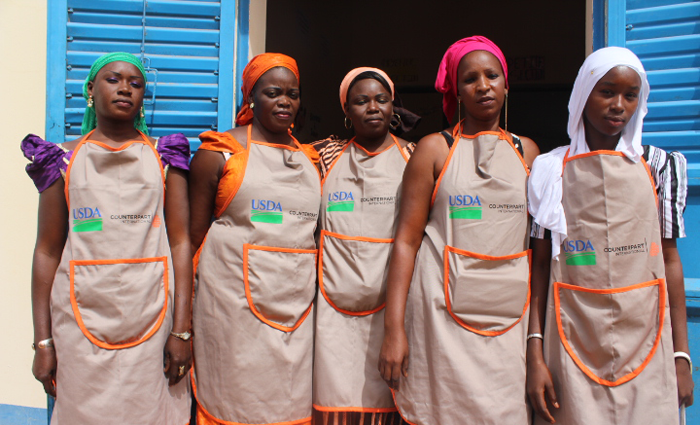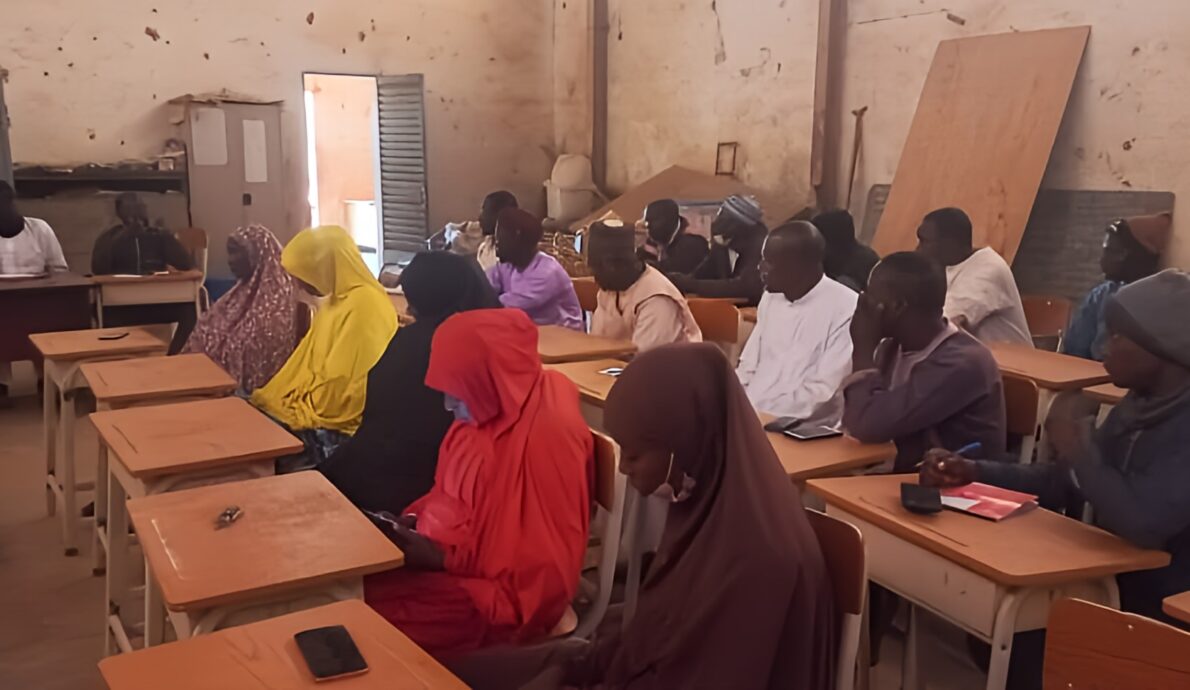In northern Senegal, home to mostly cattle headers and small subsistence farmers, deforestation is a major problem. Heavy reliance on firewood to cook meals exacerbates this issue, accelerating desertification at an alarming rate.
The USDA McGovern-Dole Food for Education Program in the Saint Louis region of northern Senegal is working with local partners to find local solutions to curtail the use of firewood. Thanks to USDA and Counterpart, 270 schools participating in the program now have new energy-efficient stoves that reduce the amount of firewood needed to cook meals by 50%.
With support from Counterpart and international donors, local cook stove manufacturer Atelier Biteye Jambar developed and piloted a prototype cook stove specifically designed to address environmental concerns and meet the need to feed over 40,000 students daily while staying true to the local Senegalese cultural cooking traditions.
[row]
[col span=4]
[/col]
[col span=4]
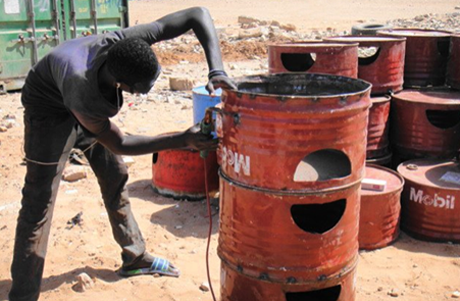
The new stoves are constructed to use less fuel and emit less smoke during cooking.
[/col]
[col span=4]
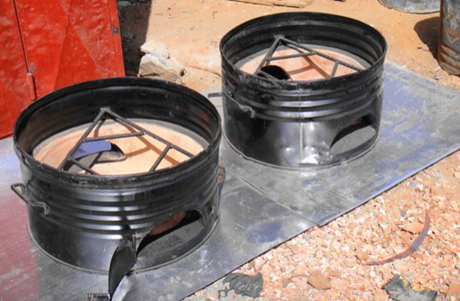
Fire-retardant black paint covers the outside and the stoves are ready for use.
[/col]
[/row]
During the design stage, the stove was tested at Ndiaw Primary School, where Mrs. Awa Sow works as one of the school cooks. She noted that “before the arrival of the improved stoves, [the equivalent of $6.70 USD] of wood was purchased daily for the cooking. Today, with the new system, only [$4.25 USD] of wood is purchased.”
With the old wood-burning stoves, she told us, school cooks complained about the heavy black smoke, which interfered with their ability to do their jobs and had negative effects on their health and that of their children who often accompanied them to work.
Equipping the schools with more fuel-efficient cook stoves has reaped immediate benefits—faster cooking times, less smoke, and less firewood. Perhaps more importantly, this improved cooking technique could help limit deforestation and improve the living conditions of the poorest populations on a widespread basis.
For Desire Yameogo, Senegal Country Director of Counterpart, “the improved energy-saving stoves have already had a positive impact. Most of our cooks are advocating for their husbands to buy them the improved energy-saving stove to replace the traditional stoves they are using.”
Together with our local partners, Counterpart has trained a total of 539 cooks in culinary preparation techniques and in the use of the improved stoves. These cooks have in turn trained 8 women per village, totaling 2,699 women who have been trained by the project in the use of the improved stoves.
Today, all 270 schools supported by the Food for Education program are reaping the benefits from the improved stoves and providing better, healthier meals for the school children. Food for Education is a three-year program implemented by Counterpart International and funded by the United States Department of Agriculture.



